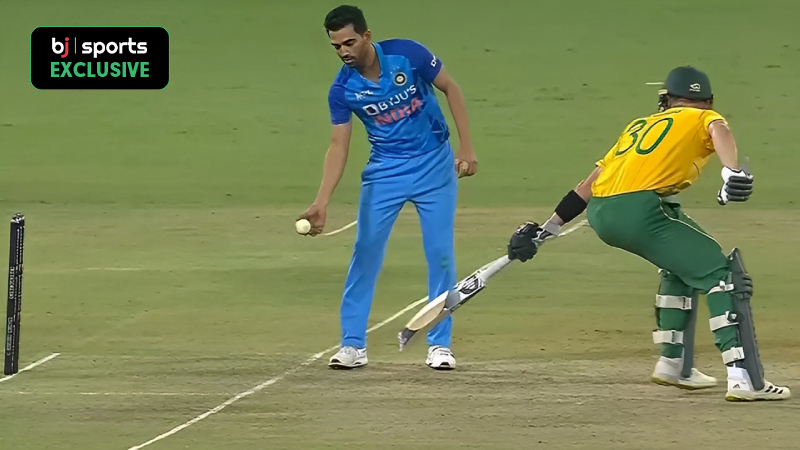The apex cricket body made several changes in cricket rules to improve the gameplay in recent years. All these rules made applicable in international cricket on October 1, 2022. In T20, the time out has been kept at 90 seconds, while the use of saliva to shine the ball has been permanently banned.
There are a total of 8 rules which were implemented last year. Here we will take a look at three significant changes in rules of cricket which made a lot of impact in the game:

The use of saliva to shine the ball was banned in international cricket in the year 2020. After the Corona epidemic, it was brought in view of security, but now it has been implemented permanently.
“The ban on saliva use has been in place for over two years in international cricket as a Covid-related temporary measure and it is considered appropriate for the ban to be made permanent,” an apex cricket body’s statement said.
With the ban on the use of saliva on the ball, it will be very difficult for the bowlers. In such a situation, the pitches should be prepared in such a way that it helps the bowlers. If the bowler is not able to shine the ball, it would be hard for them to get swing and it will remain just a game for batters. However, the officials allowed the bowlers to use their sweat.
2. Batter running out at non-striker end

If a bowler dismisses a batter standing on non-striker by scattering the bails just before the delivery, then it will be considered as run out.
However, it was populary known as ‘Mankad’ and was, earlier, considered against the spirit of the game. It made to the headlines when R Ashwin did this with Jos Buttler.
3. Unfair movement by the fielding side

The umpire can award a penalty of five runs to the batting team if a fielder intentionally commits an unsportsmanlike act or found to be doing any kind of inappropriate act just before the bowler bowls the ball. It will also be declared a dead ball.
 3 South African players to watch out for in their 3rd ODI clash against Pakistan
3 South African players to watch out for in their 3rd ODI clash against Pakistan Predicting West Indies Women’s Playing XI for their first ODI against India Women
Predicting West Indies Women’s Playing XI for their first ODI against India Women 3 Pakistani players to watch out for in their 3rd ODI clash against South Africa
3 Pakistani players to watch out for in their 3rd ODI clash against South Africa BBL 2024-25: Predicting Melbourne Renegades’ Playing XI for their clash against Perth Scorchers
BBL 2024-25: Predicting Melbourne Renegades’ Playing XI for their clash against Perth Scorchers

